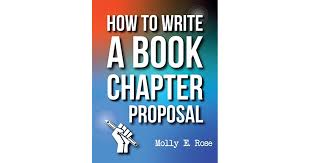 Background
Background
The global impacts of coronavirus (COVID-19) pandemic seem to have further revealed the depth of Africa’s structural weaknesses in terms of its weak response to socioeconomic shocks and the associated supply chain and logistics complexities. In spite of the restrictions in immigration and across border trade in goods and services, the challenges posed by COVID-19 outbreak spread across national boundaries in Africa as well as within the global community. These range from food, business, sanitary, health-related complications, and threats to humanity. While the global community have continued to contend and strive for suitable means to address the various challenges posed by the COVID-19 pandemic, countries in Africa have also begun to muster the lean resources to develop resilience to address complex challenges associated with the COVID-19.
Objective
The proposed edited book aims at exploring the nature and effects of non-health-related challenges as well as environmental complexities, and possible solutions to socioeconomic shocks caused by COVID-19 as well as other social, political and economic distortions. It aims to offer an in-depth understanding of the critical societal consequences of these challenges in Africa as well as macroeconomic policy space adopted by governments and non-governmental organisations to boost post-COVID-19 recovery and as well enhance a systemic process to boost the prospects for addressing socioeconomic shocks across the continent. Therefore, the edited book is hoped to also project a culture of ownership mentality that can sustain a joint platform to yield socioeconomic emancipation for African countries. The research further provides the development of the critical understanding of the above issues across various critical sectors in African economies.
Sub-themes
The following sub-themes will guide the research:
1. COVID-19, health sector performance and Sustainable Development Goals (SDGs) in Africa.
2. Disruptive effects of COVID-19 and health challenges on the attainment of national policies and public service provisions in African countries.
3. The socioeconomic pressures due to the effects of the crash in commodity prices on the national budgeting process in African countries.
4.The coping strategies and the opportunity costs of the broad disruptive effects of COVID-19 on micro, small, medium enterprises (MSMEs) and informal economies in Africa.
5. Innovative finance, remittances and similar policy tools for overcoming socioeconomic shocks
6. Indigenous and foreign direct investments, trade and regional cooperation strategies towards absorbing socioeconomic shocks in Africa
7. Social, economic and security complexities across Africa occasioned by socioeconomic shocks.
8. Systemic hindrances of socioeconomic shocks on supply and value chain development in Africa.
9. Socioeconomic shocks, agribusiness and private sector development in Africa;
10. Socioeconomic shocks and human capital development in Africa
11. Socioeconomic shocks, energy sector performance and economic development in Africa
12.Paradigm Shift in educational systems in post-COVID-19 Pandemic in Africa.
13. Social protection and shocks mitigation in African countries.
14.Urbanisation, smart cities, infrastructure connectivity and Africa’s readiness for the post-COVID world.
15.Climate change, environmental management and socioeconomic shocks in Africa
16. Socioeconomic shocks and implications for ethnic diversity among vulnerable populations
Target Audience
Given its focus on how to tackle the socioeconomic shocks and to provide policy response for the African continent on the path of development, the book will be of immense benefits to students, academics, researchers, policymakers, international agencies both within and outside Africa. It is also germane given the topical and current nature of the issues that the book is addressing. The book will be needed in libraries, higher educational institutions, research institutes, government parastatals and international development agencies.
Mode of Submission
The edited book will be published by Routledge. To this end, interested researchers and practitioners are welcomed to submit chapter proposals between 750 to 1500 words on or before August 14, 2020. The chapter proposals should clearly explain the research/socioeconomic issue, objectives, proposed methodology and anticipated results/policy relevance. The title of the proposed chapter, the full name of authors, affiliations and contact information should be indicated clearly. The chapter proposal should be emailed to godularu@bau.edu and copy:
evans.osabuohien@covenantuniversity.edu.ng;
daniel.ufua@covenantuniversity.edu.ng; and romanus.osabohien@covenantuniversity.edu.ng.
Important Timelines
August 14, 2020: Chapter Proposal Submission
August 27, 2020: Notification on Submitted Chapter Proposal
November 5, 2020: Full Chapter Submission
December 10, 2020: Review Results Returned
December 21, 2020: Final Notification to Authors
January 25, 2021: Final Chapter Submission
For more details see: https://evansosabuohien.com/call-for-chapter-abstracts/

Thank you





